WHAT IS POLYCYSTIC OVARIES? CAUSES,WHAT ARE FIRST SIGN OF PCOS? SYMPTOMS, IS BILATERAL POLYCYSTIC OVARIES DANGEROUS? PCOS PREGNANCY,CAN PCOS GO AWAY? HOW DO YOU GET RID OF PCOS? DIET, DIAGNOSIS,TREATMENT
- POLYCYSTIC OVARIES DEF:
- PCOS CAUSES
- WHAT ARE FIRST SIGN OF PCOS?
- SYMPTOMS
- PCOS PREGNANCY
- HOW DO YOU GET RID OF PCOS?
- DIET
- DIAGNOSIS
- TREATMENT
POLYCYSTIC OVARIES DEF:
Polycystic ovary syndrome (PCOS) is a hormonal disorder that is common in women of reproductive age. Women with PCOS may have shorter or longer periods or have higher levels of the male hormone (androgen). The ovaries can develop many small collections of fluid (follicles) and fail to release eggs regularly.
The exact cause of PCOS is unknown. Early diagnosis and treatment along with weight loss can reduce the risk of chronic complications such as type 2 diabetes and heart disease.
CAUSES OF PCOS:
The exact cause of PCOS is unknown, but it seems to be related to family history and genetics. Hormones that increase during our development until before birth; And lifestyle or environment.
- Family History
So far, no single gene has been found to cause PCOS, so the link is complex and involves multiple genes.
Women with PCOS are 50% more likely to have an immediate female relative - mother, aunt, sister or daughter with PCOS. Type 2 diabetes is also common in families with PCOS.
- Hormone Levels
An imbalance in the body of insulin and androgen hormones (male-type hormones such as testosterone) can cause the symptoms and signs of PCOS.
One of the roles of insulin in the body is to prevent the level of glucose (sugar or energy) in the blood from rising too high after a meal. It 'unlocks' body cells and allows glucose to flow from the blood into the cells. It lowers the level of glucose in the blood.
- Insulin Resistance
Eighty-five percent of all women with PCOS have 'insulin resistance'. [1] If you are insulin resistant, your body cells will usually stop responding to insulin and instead the cells will block the entry of glucose. This means that your body is not using the available insulin effectively to help keep your glucose levels stable.
Since insulin does not work as effectively, the body responds by producing more insulin. High levels of insulin increase the production of androgens such as testosterone in the ovaries.
Insulin resistance is partly caused by lifestyle factors - overweight, diet or physical inactivity. But insulin resistance can also occur for genetic reasons and can occur in women of all weight groups. Evidence shows that 95% of women with PCOS, unhealthy weight and 75% of thin people are insulin resistant.
Insulin resistance plays a big role in PCOS symptoms, so it is important to understand what it is. But it is also important to know that there are ways to reduce it.
Regular activity and a healthy diet are very important in maintaining and reducing insulin resistance and can significantly improve PCOS symptoms.
- Androgens
Androgens, sometimes called 'male hormones', are commonly found in both men and women, but in much lower levels in women. All women produce small amounts of androgens in body tissues, including the ovaries and adrenal glands. In women with PCOS, high levels of androgens can cause symptoms such as excessive hair growth, scalp hair loss and acne. They also contribute to symptoms such as irregular periods and irregular ovulation.
- Weight and lifestyle
PCOS can occur in thin and overweight women. However, women with PCOS have an increased risk of being overweight or obese.
Being over a healthy weight can further worsen insulin resistance, which is thought to be an important part of PCOS development and PCOS symptoms. Being overweight increases the two hormones responsible for PCOS symptoms.
The good news is that a healthy lifestyle of nutritious diet and physical activity can help treat PCOS and improve symptoms.
Support is available to help you make lifestyle changes that will benefit your overall health, including many of the symptoms of PCOS. See our page on Healthy Living for more information.
WHAT IS FIRST SIGN OF PCOS?
Some of the first symptoms a woman may notice may indicate that she has polycystic ovarian syndrome (PCOS):
- Missed periods / irregular periods
- It is difficult to conceive
- Weight gain
- Acne or oily skin
Signs And Symptoms Of PCOS?
The symptoms of PCOS come in many forms. Some women have only a few or mild symptoms, while others have more severe symptoms. Symptoms may also change at different stages of a woman's life.
Symptoms of PCOS may include:
- Periods And Fertility
Periods or less , - Irregular - Rare - Multiple 'cysts' on the ovaries Huge immature ovarian eggs Difficult to conceive Some health challenges during pregnancy.
- Facial hair / hirsutism
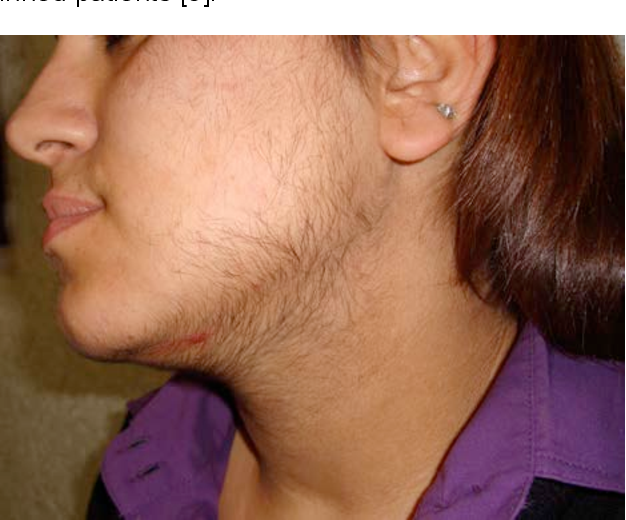
Mental and Emotional Health Mood Depression Anxiety Low self-esteem Poor body image affects quality of life
Related health conditions Sleep apnea (sleep disorder caused by abnormal sleep breathing) increases the risk of diabetes, starting early Health problems increase the risk of heart disease.
- Hair loss / alopecia
Although some women with PCOS have regular periods, high levels of androgens and insulin can interfere with monthly ovulation (when eggs are released).
If you have PCOS, your periods may not be regular or may stop altogether. In some girls, PCOS is the reason why periods do not start.
The average menstrual cycle is 28 days with one ovulation, but anywhere between 21 and 35 days is considered normal.
The longer the cycle, the more likely it is that ovulation will stop completely (called 'ovulation') or occur only occasionally. Some women with PCOS may also experience heavy or mild bleeding during their cycle.
- Low Fertility
It is important to know that women without PCOS have the same number of children (with or without help) as women without PCOS. Most women with PCOS have children without the need for infertility treatment, but some women need medical help to become pregnant.
In women with PCOS, high levels of androgens and insulin can affect the cycle and prevent ovulation (from to the release of a mature egg). Ovulation may stop completely (ovulation), or it may occur randomly. This makes it more difficult for women with PCOS to conceive naturally, however, this does not mean that all women with PCOS.
- Skin Condition
If you have PCOS, high levels of androgens increase the size of the oil-producing glands on the skin, which can lead to acne. Acne can have serious psychological consequences, especially for adolescents, who have PCOS.
Women with PCOS may also develop skin tags, which are usually thick lumps of skin on the armpits, neck, or along the line.
Women with PCOS can also develop rough, dark, velvety patches on the skin. These occur in the armpit or neck area and are called acanthosis nigricans.
These symptoms can be very distressing for some women, but there are treatments available that can help all of them.
Psychological Effects
Depression and anxiety are common symptoms of PCOS.It is not clear why women with PCOS are at increased risk for emotional challenges. There may be a link to the hormonal changes that occur in PCOS, but more research is needed in this area before we can understand why and how hormones in PCOS affect mental health.
Dealing with hirsutism, severe acne, weight changes and fertility issues can have an impact on your body image, self-esteem, sexuality and femininity. It can add to the level of frustration and anxiety. Fertility issues can affect your mood, especially if fertility has been a concern for a long time.
Additionally, these emotional challenges can be very difficult if you do not know you have PCOS. Weight Management Problems In addition to the delay in diagnosing PCOS, you may feel helpless and helpless. This is especially true if you do not have the knowledge and support you need to maintain these features. This creates a negative cycle, which makes it harder to take responsibility for your health and lead a healthier lifestyle as possible.
The emotional challenges of PCOS are many, but with the right support, education about PCOS and proper treatment, your emotional and physical health will improve.
IS BILATER POLYCYSTIC OVARIES DANGEROUS?
Those cysts are not harmful, but they can cause an imbalance in hormone levels. Women with PCOS may also experience menstrual cycle abnormalities, increased androgen (sex hormone) levels, increased hair growth, acne and obesity.
DO PCOS WOMAN GET PREGNANCY?
1- Just because you have PCOS does not mean you can't get pregnant. PCOS is one of the most common but treatable causes of infertility in women. In women with PCOS, hormonal imbalances can interfere with the development and release of eggs from the ovaries (ovulation). If you do not ovulate, you cannot get pregnant.
2- PCOS disrupts the normal cycle and makes it difficult to conceive. About 70 to 80 percent of women with PCOS have fertility problems
This condition also increases the risk of pregnancy complications.
Women with PCOS are twice as likely to give birth to a premature baby than women without the condition. They are also at higher risk for miscarriage, high blood pressure and gestational diabetes (19).
However, women with PCOS can get pregnant using fertility treatments that improve ovulation. Losing weight and lowering blood sugar levels can improve the chances of a healthy pregnancy.
CAN PCOS GO AWAY?
There is currently no cure for PCOS, and it does not go away on its own. Even after menopause, women with PCOS often have high levels of androgens as well as insulin resistance. This means that the health risks associated with PCOS are lifelong.
DIAGNOSIS:
- Pelvic Exam
There is no test to diagnose PCOS. Your doctor can start with a discussion about your medical history, including changes in your periods and weight. Physical examination will include checking for signs of excessive hair growth, insulin resistance and acne.
A pelvic exam. The doctor will visually and manually examine your reproductive organs for mass, growth or other abnormalities.
- Blood Test
Your blood can be analyzed to measure hormone levels. This test can rule out menstrual abnormalities or possible causes of androgen overdose that mimic PCOS. You may have additional blood tests to measure glucose tolerance and fasting cholesterol and triglyceride levels.
- An Ultrasound
Your doctor will check the appearance of your ovaries and the thickness of the lining of your . A wand-like device (transducer) is placed in your (transvaginal ultrasound). The transducer emits sound waves, which are translated into images on a computer screen.
If you have a PCOS diagnosis, your doctor may recommend additional tests for problems. Those tests may include:
- Periodic checks of blood pressure,
- glucose tolerance,
- cholesterol and triglyceride levels
- Screening for depression and anxiety
- Screening for obstructive sleep apnea
- Hormone Blood Test
Blood tests are used to assess the level of androgen in your body. Blood tests for testosterone and the free androgen index (FAI) are the best tests to find out if you have hyperandrogenism (high androgen levels).
- Hormone-binding globulin (SHBG
- Dehydroepiandrosterone sulfate (DHEAS)
- Androstenedione
Blood tests are also done to assess the levels of other reproductive hormones in your body, as these can also affect your periods. These may include testing your levels:
- (estrogen, the major female sex hormone
- Follicle-stimulating hormone (FSH)
- Luteinizing hormone (LH).
- Thyroid-stimulating hormone (TSH)
- Prolactin
Hormones related to adrenal function (glands above the kidneys), for -hydroxyprogesterone.
- Demand Ultrasound
Ultrasound is not required if the menstrual discharge is irregular and there are signs or measurements of high levels of androgens, and if the woman is less than 20 years old. Ultrasound may still be needed if you have very high levels of androgens or a set of abnormal symptoms (for example, severe scalp hair loss or excessive hair growth, or failure to fully develop over time).
- Transvaginal Ultrasound
Transvaginal ultrasound is performed only for women who are sexually active, otherwise the abdomen will be scanned. Transvaginal ultrasound is a painless test without radiation. It uses a pen-size probe with an ultrasound sensor at the tip inserted into the . It produces a much clearer picture than an abdominal ultrasound.
- Abdominal Ultrasound
On abdominal ultrasound, the ovaries can be seen from the outside through the abdominal wall.
- Other Tests
Because of the relationship between PCOS, insulin resistance and overweight, it is important to assess the risk of cardiovascular disease and diabetes when testing for PCOS. Tests to assess these risks may include:
If you have PCOS, you will need cholesterol and diabetes tests every 1-3 years and blood pressure tests every year. You may need these tests more often if you have risk factors such as a family history of diabetes or previous abnormal cholesterol tests.
DIET FOR PCOS
Three foods that can help people with PCOS manage their symptoms:
- Low Glycemic Index (GI) Diet
The body digests low GI foods more slowly, which means they do not raise insulin levels as quickly or as fast as other foods such as certain carbohydrates. Low GI diets include whole grains, legumes, nuts, seeds, fruits, carbs and other unprocessed, low carbohydrate foods.
- Anti-Inflammatory Diet
Eating anti-inflammatory foods such as berries, fatty fish, leafy vegetables and extra olive oil can reduce inflammatory symptoms such as fatigue.
- DASH Diet
Doctors often recommend a diet to stop the blood pressure (DASH) diet to reduce the risk or side effects of heart disease. It also helps maintain the symptoms of PCOS. The DASH Diet is high in fish, poultry, fruits, vegetables, whole grains and low - dairy products. Diet discourages saturated and sugary foods.
- Inositol
Inositol is a B vitamin that improves insulin resistance. It has also been found to help with fertility in some cases of PCOS.
- Chromium Is A Reliable Source
Chromium supplements can improve your body mass index, which can help with PCOS. They can stabilize insulin resistance by helping your body metabolize sugar.
- Cinnamon
Cinnamon comes from the bark of the cinnamon. Cinnamon extract has a positive effect on insulin resistance. Cinnamon can also control menstruation in women with PCOS.
- Turmeric
The active ingredient in turmeric is called curcumin. Jaundice can be a good source to reduce insulin resistance and as an anti-inflammatory agent.
- Zinc
Zinc is a trace element that boosts fertility and your immunity. Excess or unwanted hair growth and alopecia can be improved with zinc supplements.
You can also eat red meat, beans, tree nuts and seafood to get more zinc in your diet.
- Evening Primrose Oil
Primrose evening primrose oil was used to relieve menstrual pain and irregular . It also improves cholesterol levels and oxidative stress, both of which are associated with PCOS.
- Combine Vitamin D And Calcium
Vitamin D is an important hormone for your endocrine system. Vitamin D deficiency is common in women with PCOS. Vitamin D and Calcium improve irregular periods and help you with ovulation.
- Cod Liver Oil
Cod liver oil is high in vitamins D and A, as well as omega-3 fatty acids. These acids improve al tu regularity and help get rid of pimples around your waist.
- Berberine
Berberine is an herb used in Chinese medicine to help with insulin resistance. If you have PCOS, berberine speeds up your metabolism and balances your body’s endocrine responses.
A healthy PCOS diet may also include the following foods:
- Natural, unprocessed foods
- High fiber foods
- Fatty fish, including salmon, tuna, sardines and mackerel
- Kale, lettuce and other dark, leafy greens
- Dark red fruits such as red grapes, blueberries, blackberries and cherries
- Broccoli and cauliflower
- Dried beans, lentils and other legumes
- Olive oil, as well as healthy fats such as avocado and coconut
- Nuts including pine nuts, walnuts, almonds and pistachios
- Dark chocolate in moderation
- Spices such as turmeric and cinnamon
Foods To Avoid:
In general, people on the PCOS diet should avoid foods that are widely seen as unhealthy. Contains:
- Such as refined carbohydrates, mass-produced pastries and white bread.
- Fried foods like fast food.
- Sweet drinks like soda and energy drinks.
- Processed meats such as hot dogs, sausages and lunch meats.
- Solid fats including margarine, abbreviated and lard.
- Extra red meats like steak, hamburgers and pork.
TREATMENT
Therapies can help you manage the symptoms of polycystic syndrome (PCOS) and reduce your risk of developing chronic health problems such as diabetes and heart disease.
You and your doctor should talk about your goals so that you can formulate a treatment plan. For example, if you want to get pregnant and you have trouble, your treatment can help you conceive. If you want to tame pimples related to PCOS, you can get treatment for skin problems.
- Lifestyle Changes For PCOS
One of the best ways to deal with PCOS is to eat well and exercise regularly.
Most women with PCOS are overweight or obese. Losing just 5% to 10% of your body weight can reduce some of the symptoms and help your periods become more regular. It also helps maintain blood sugar levels and problems with ovulation.
Since PCOS can lead to high blood sugar, your doctor may ask you to limit starchy or sugary foods. Instead, eat high-fiber foods and meals that slowly raise your blood sugar levels.
Being active can also help control your blood sugar and insulin. And exercising every day can help you lose weight.
Most women with PCOS require lifestyle changes and a combination of medications. Your doctor will design a treatment plan for you to treat your individual symptoms.
problems
- Menstrual Problems
Contraception is the most common PCOS treatment for women who do not want to become pregnant. Hormonal birth control - pills, skin patch, vaginal ring, shots or hormonal IUD (cervical device) - can help restore regular periods.
These birth control methods also reduce the chances of endometrial cancer in the lining.
- Birth control pills
Treatment with PCOS birth control pills
It is a common treatment to control fetal and reduce androgen levels and to limit excessive hair growth and pimples by protecting the endometrium ( inner layer) from abnormal cell growth. Controlling your hormones can reduce your risk of endometrial cancer.
Tablets containing estrogen and progestin reduce androgen production and regulate estrogen. Older birth control pills reduce the risk of dangerous blood clots and are better than newer birth control pills.
Instead of pills, you may want to use a skin patch or vaginal ring that contains a combination of estrogen and progestin.
- Metformin
Although metformin is not approved by the FDA for the treatment of PCOS, most physicians prescribe it to PCOS patients. Metformin is a drug that makes the body more sensitive to insulin. It helps in lowering blood sugar levels, insulin levels and androgen levels. People who use metformin may also lose some weight. Metformin improves menstrual flow, but it does not help much for unwanted extra hair.
Most women with PCOS are suddenly prescribed metformin. However, it is important to have a reason to take metformin only because of a PCOS diagnosis and not over it. Discuss with your doctor why you are taking metformin and whether it will benefit you.
- Clomiphene
This is the drug, the most common treatment used to induce ovulation. The use of both metformin and clomiphene has the same fertile results as clomiphene used alone. Assisted Reproductive Technology (ART) Metformin may be helpful in reducing the risk of ovarian hyperstimulation syndrome (OHSS) during fertility treatment.
- Letrozole
Other therapies that stimulate ovulation include another **** called letrozole (femora) which contains gonadotropins, a hormone given by injection. In vitro fertilization (IVF) and in vitro maturation (IVM) may be other fertility treatment options.
- Vitamins
Vitamins, supplements and other complementary treatments are very popular among women with PCOS. Researchers are studying the effectiveness of such treatments. Popular options include cinnamon, myo-inositol, vitamin D, B complex vitamins and acupuncture. We look forward to sharing and explaining the evidence with these and other therapies, as well as developing research results.
Because the severity of PCOS can vary from person to person, treatment plans are highly individualized. It is important to talk to your doctor about all possible treatments for PCOS and discuss different options.
If you are not trying to conceive now, consider factors such as cost, desire to have children in the future, irregular bleeding and regular action rupture and effectiveness in preventing pregnancy.
HOMOEOPATHY TREATMENT
1- Sepia:
Top Remedy for PCOS
Sepia tops the list of medications for treating polycystic ovary syndrome. Menstrual symptoms for sepia are late and less ******. In most cases, it is accompanied by sensations of numbness in the pelvic area. The ovaries expand with fluid-filled cysts. Sepia works very effectively to control the expected cycle to appear at the appropriate estimated time. Sepia can also be considered for cases related to infertility due to PCOS. Sepia can also control abnormal hair growth on the face, especially on the lips. Other common symptoms to look for before taking sepia are sensitivity to cold air, mental irritability and apathy towards loved ones.
2- Pulsatilla
is a natural medicine for the treatment of PCOS. It is especially useful in treating PCOS cases in women with long suppressed periods. Women who need Pulsatilla have shorter periods and are more painful. Pulsatilla removes barriers that stop periods and allows periods to flow normally. Pulsatilla increases the body's energy and directs its path towards removing the obstacle, thereby restoring al tu flow. Pulcatilla is very useful for young women who suffer from PCOS during puberty. Common physical symptoms to consider when using Pulsatilla are complete absence of thirst and desire for cold outdoor air. Open air provides total patient relief. And in the psychic realm, the notable important traits are the tendency to cry with a mild, sensitive attitude. Such a woman cries even the slightest and feels a little better when she is comforted.
3- Calcarea Carb
a natural medicine, helps greatly in the treatment of PCOS and is especially suitable when a woman with PCOS suffers longer than normal periods. Women with PCOS who are experiencing weight gain and obesity problem are also candidates who need lime carb. Calcarea Carb can help such women lose excess weight very effectively. Some common physical symptoms should be noted when taking Calcarea Carb. First, excessive sweating of the head. The second is extreme sensitivity to cold air. And the last is the desire for boiled eggs and, in some cases, the strange desire for strange eating habits such as chalk and lime.
4- Natrum Mur
Natrum Mur is a very effective medicine to treat women with PCOS who have irregular and suppressed Rum. Natrum Mur benefits many women by controlling their menstrual cycles. Natrum Moore should also be considered for women who have difficulty conceiving due to PCOS. Important symptoms to note when using Natrum Moor are feeling intense heat, aversion to the heat of the sun and the desire to add salt to the diet. The reserved nature of the patient in the psychological picture to be considered, especially when alone, is exacerbated by crying letters and symptoms when given sympathy.
5- Thuja
Thuja is a medicine that is considered to be very helpful in the treatment of PCOS. Thuja is a very effective medicine and is used when a woman with multiple cysts in the ovaries is suffering from menstruation. Thuja has the natural ability to dissolve abnormal growths or accumulations anywhere in the body. Therefore, it has the highest power to dissolve even ulcers. Most women need thuja, cystic growth is most visible on their left side . Thuja is of great help in treating excessive hair growth on abnormal parts in women due to hormonal imbalance.
6- For suppressed or absent menses
Pulsatilla, Kali Carb and Senecio work successfully to restore non-. Suppressed In most cases pulsatilla top medicine proves to be successful in bringing back the medicine and menstruation. Kali Carb is a very beneficial medicine when completely suppressed for many months. Senseo is the ideal medicine drug when suppressed but woman thinks it is coming. In such cases related complaints are heaviness or pain and nausea in the pelvic area but no menstruation.
ALWAS USE HOMOEOPATHIC MEDICINES BY DOCTOR'S ADVISE.FOR MORE DETAIL .
DR.TAYYIBA AJ



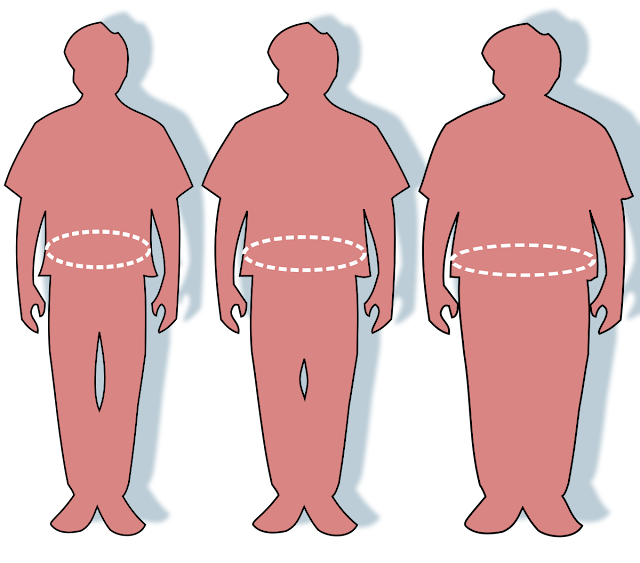
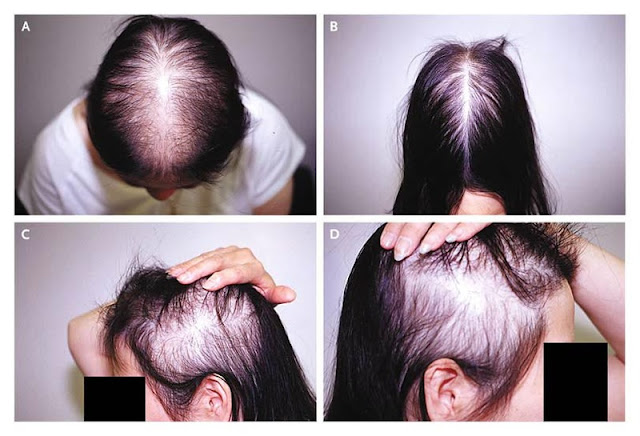
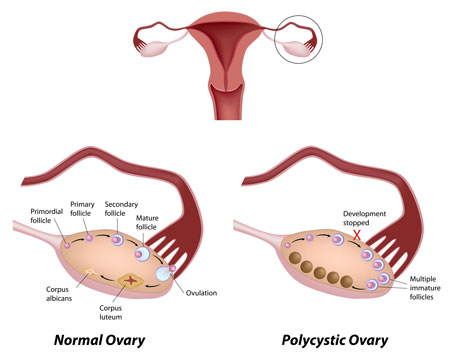
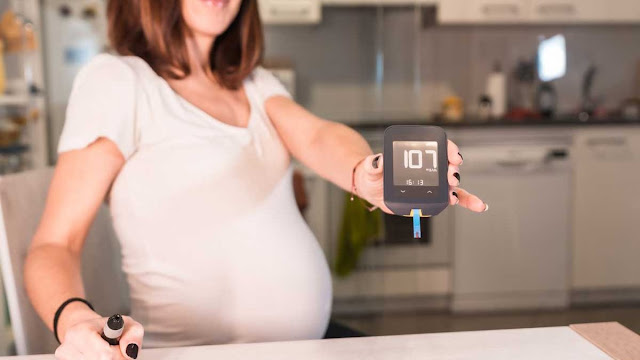
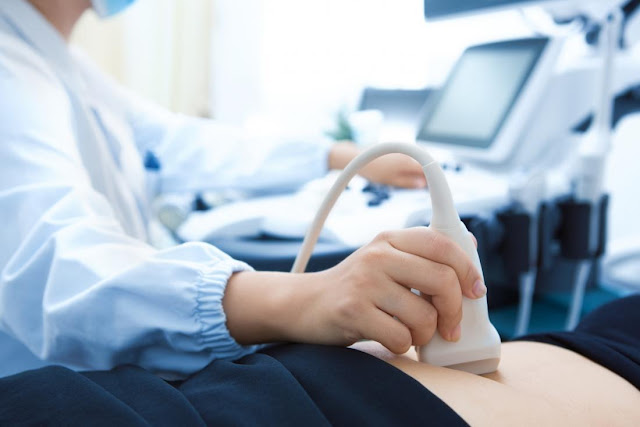










1 Comments
, ok thanks 🙏
ReplyDelete